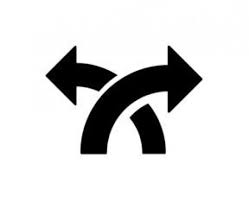|
(2017
midterm assignment) Model Student Midterm answers 2016 (Index) Essay 3: Web Highlights |
 |
Vaneza Cervantes
Web
highlights: A Look Within
For
my web highlights I decided to take three of the most interesting essay s that I
just enjoyed reading and found questions that I wish I could ask the writer. I
will be reflecting and critiquing on Cheryl Voskamp’s
The Mind in Overdrive, Rachel
Jungklaus’ Does Utopia Exist, and
Tamatha Beasley’s Here it goes! Even
though there were more essays I wish I could have written on these ladies were
my top three and am truly excited to be writing my thoughts about their essays.
Reading Voskamp’s essay, I can totally relate with the mind going on overdrive
when one finishes reading all of the different excerpts from this class. There
is so much to compare and see with the three narratives of the future that it
can be overwhelming at times. Voskamp does a wonderful job reeling in her reader
into powerful comparisons and questions. Starting
with the bible and Parable of the Sower, Voskamp tells her readers that there is
chaos in the world; however “like-minded individuals create their own Eden from
what is left over.” And with what is left over we evolve. Voskamp continues with
the story of Adam and Eve to make this point. She writes about the descendants
of Adam and Eve and how they continue living beside the chaos that surrounds
them. However, in the Time Machine Voskamp writes that “evolution has weeded out
the human entirely.” I would disagree here. Yes there are no humans living in
the time of future the time traveler went to go visit. But I believe and the
time traveler said so as well that these Eloi and Morlocks are the humans, “the
Upperworld man had drifted towards his feeble prettiness, and the Underworld to
mere mechanical industry” (79). Humanity just needed to adapt and change in
order for survival. If we are to believe that we evolved from monkeys then I
believe that what the time traveler saw was humans evolved.
Besides that Voskamp then brings up even more amazing comparisons for evolution
and alternative. Her ending is what really brought it all together and makes the
reader question the world around them which I just adore: “Who knows, maybe I am
actually running under normal time constraints in some other life instead of
always late in this one!” alternative futures are what make me wonder if we are
actually living in the now. To end, Voskamp wrote a captivating essay on a topic
that is definitely on everyone’s mind after they leave Dr. White’s classroom-
What if?
Jungklaus starts her essay with an engaging introduction. She states a question,
does utopia exist, that connects with her readers because it is a recurring
issue that we face every four years in voting for a new president. We expect a
better outcome for the next years. Jungklaus then brings up the quote of “every
utopia is someone else’s dystopia.” She then goes on in making comparisons about
living on the ‘other side of the aisle’. Meaning the vice-versa of every
dystopia is someone else’s utopia. What I really like about her essay is that
she brings in so many outside materials (readings) that prove her point of the
vice-versa feel of dystopia and utopia. The characters in her other readings go
out of their utopian or dystopian world to reach the opposite. Later on she goes
into the class readings. Jungklaus talks about
Parable of the Sower and how Keith
“found the outside world to his liking right up until he died.” He is the
perfect example of someone living in a ‘utopian’ world looking at a dystopian
world thinking it is better. I would also argue that Lauren could be looking
through Keith’s eyes. Lauren sees a probable utopia in Mars, but her father does
not think so. Lauren, slowly, starts seeing that this so called utopian world is
not what it seems. We see this when one of her neighbors commits suicide. Lauren
says if she believed so much in what her father preached, if where they lived it
was a utopian little world, then why create a great sin. Maybe there’s something
better outside of our confinement, maybe the dystopian world that we thought is
actually our utopian. And Lauren was right. She found something better, she
experience mental and physical growth finding a utopian world.
Jungklaus then ends her essay by proving her point further in bring in more
outside material. One critique is that I wish she would’ve talked more about the
books we’ve read. If carefully analyzed Jungklaus could’ve found examples to
match her theme. For example in Mozart in Mirrorshades, the historical people
Marie Antoinette and Mozart craved for the supposed utopian world that Rice came
from. The historical characters desired the green card and all the items that
came from his world. However Rice saw their world as a utopia. He could as he
wished. Take anything he wanted because he had the power to, whereas in his
everyday dull world (to him probably dystopia, following orders and such) he
could not. However, Jungklaus had an excellent essay and wonderful examples.
Tamatha writes about something that grasped my personal attention. For her
personal essay she brings up Science fiction being taught into the future
classrooms. Beasley writes, “We will ignite a passion for science fiction that
will spread like wild fire into the minds of our future leaders in academia.” I
absolutely love how she started her essay with this quote. It is our solemn duty
to ignite interest and fire into our student’s education. Beasley then adds
humor by addressing our professor (yes you are not wrinkly Dr. White) and how he
is the starting point of how we will address our future students. She writes
about how it is important to use past material, experiences, and stories in the
future. Although Beasley confused
me at times by stating that she agrees for adding the past to the future but not
altering or creating a drastic change. She did a good job by pin pointing that
as future educators we can use all of these terms and symbols in our future
classrooms and teach our students the wonder and benefits of science fiction.
To
conclude all of these ladies really brought a lot of interesting personal
intakes in all of their essays. I found them all insightful and entertaining. It
was a true joy to read past students' essays and get a different outlook on the
same essays that we have to write.
 |
 |
 |
